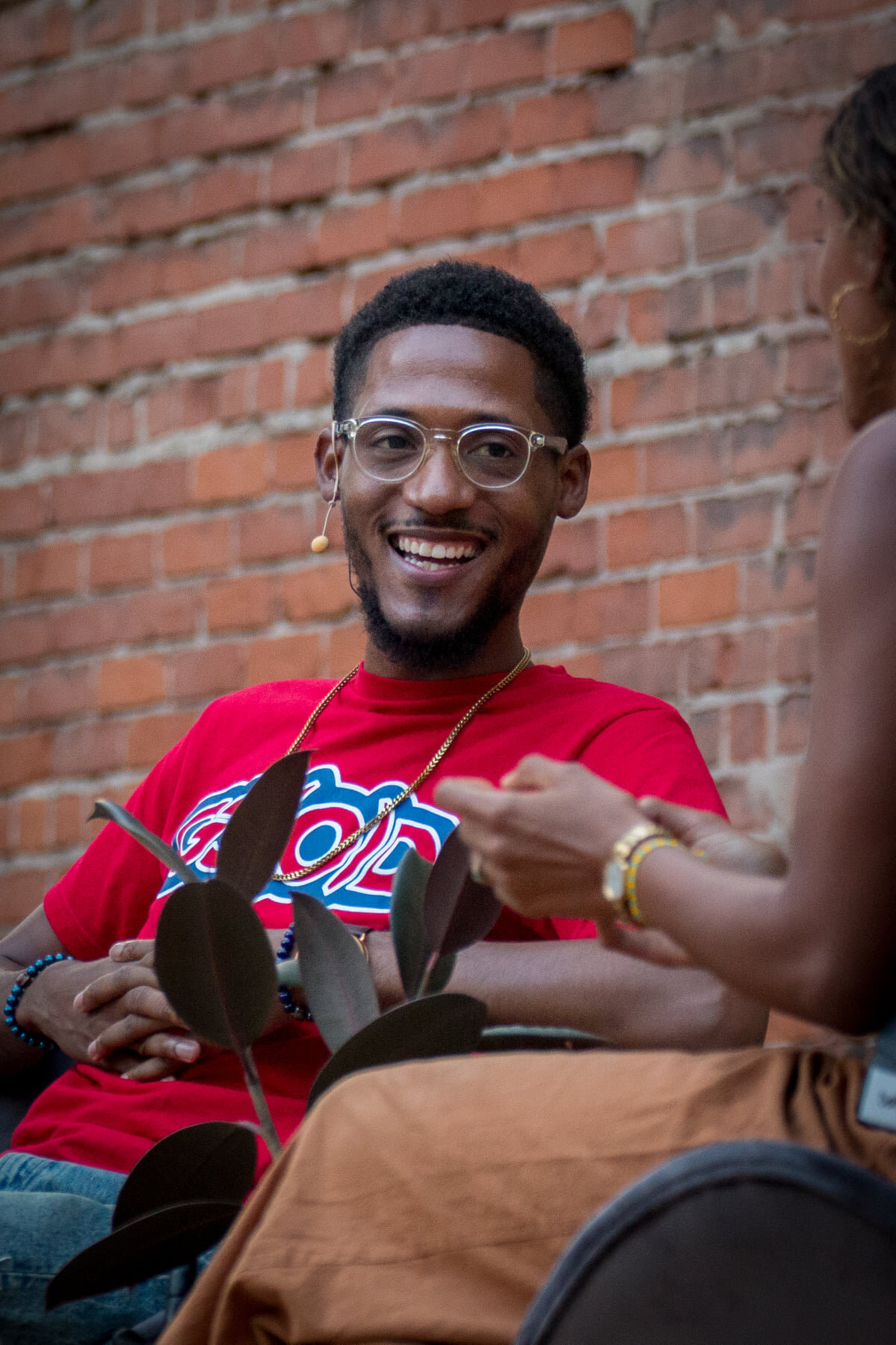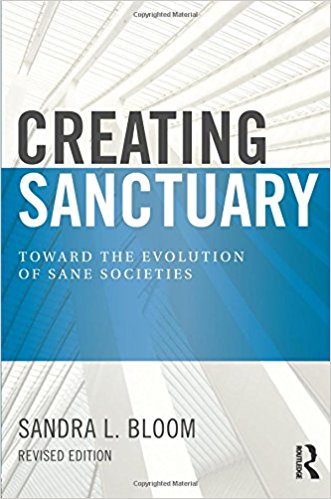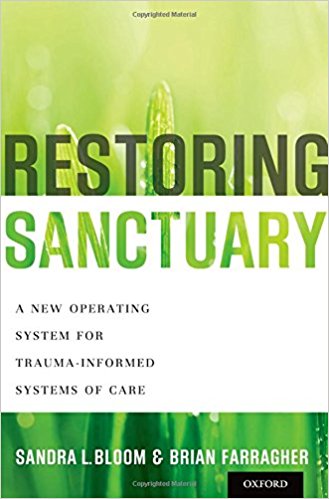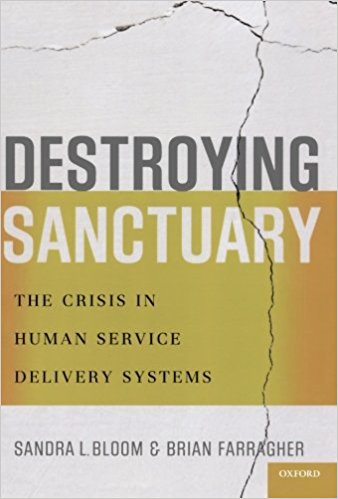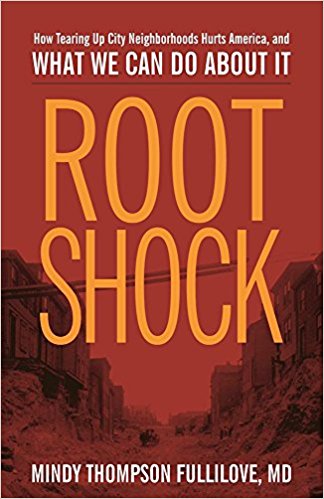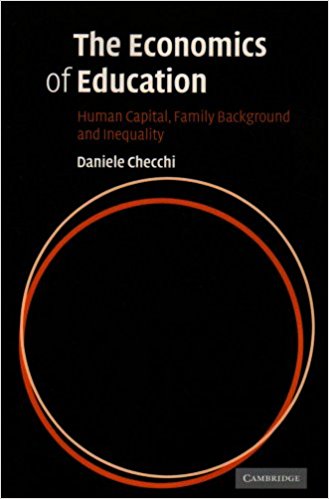Exploring the Future of Black Ownership, Imagination and Narrative in American Cities
BY SULIN NGO
Video & Photography by Afrochine
On Monday, July 12, Urban Consulate held its first in-person conversation in over a year at Five Points Alley in Cincinnati’s historic Walnut Hills neighborhood. Over 100 people attended both outdoors and online for Black Places Matter, a cross-city conversation about the future of ownership, imagination and narrative in Black neighborhoods.
In true cross-city fashion, each Cincinnati guest paired with a Detroit guest to pose questions to each other. Co-hosts Naimah Bilal & Megan Trischler welcomed to the stage three pairs: Kathryne Gardette, civic leader & cultural innovator with Chase L. Cantrell, Building Community Value; Lauren Hood, Institute for AfroUrbanism with phrie, restorative culture designer; and Destinee Thomas, Cincy Nice with Orlando P. Bailey, BridgeDetroit.
Ownership Matters.
Kathryne Gardette of Cincinnati and Chase L. Cantrell of Detroit started the night by exploring the importance of Black Americans owning property, first by examining the history of Black ownership across their two cities.
Cantrell, as the founder and Executive Director of Building Community Value, a non-profit dedicated to implementing and facilitating real estate development projects in underserved Detroit neighborhoods, realized that rebuilding Black Detroit was not just about redeveloping vacant buildings, but “walking alongside [Detroiters] to help them realize their own dreams.”
Gardette, as a longtime resident of East Walnut Hills, is a businesswoman, investor, advocate, booster, and — yes! — even match-maker. She and her husband own the Miller-Gardette building on McMillan St. in East Walnut Hills, which is a “go to” place for everything from meditation to book signings to classes in African drumming.
“What IS the importance of Black property ownership?” asked Gardette, as she and Cantrell recounted the historic decline of Black ownership in both of their cities.
In the multiple generations that Gardette’s family has lived in Walnut Hills, Gardette was raised to believe that “if you own, then you have a responsibility and you cannot be pushed out.”
This, combined with witnessing an exodus of Black businesses and investment from her neighborhood due to increasing rents, spurred Gardette to put her stake in the ground and purchase the building. “Being creatives and artists, we said, ‘We’re going to make a mark,’” said Gardette.
But Black spaces, she said, are not solely defined by geographical boundaries.
“I think Black space is defined by culture and history. It's where Black people gather. Eden Park, Sunday dinners, book clubs. The union workers in Walnut Hills who fought for representation — that's Black space as well.”
Cantrell and Gardette agreed the conversation about “who gets to own” businesses and homes is part of a larger conversation about the survival of the Black middle class and options for building generational wealth, as affordable housing shortages impact American cities, and financial institutions continue to make loans and other home financing options difficult to access.
Imagination Matters.
Lauren Hood, founder of the forthcoming Institute for AfroUrbanism in Detroit, announced her intention at the start of her dialogue: “I want us to take up space as Black girls talking about Black imagination and our wildest dreams for Black space.” phrie, cultural strategist and principal investigator at phrie worlds, didn’t hesitate to take up the challenge.
“I have a very active imagination,” said phrie, “because right now I’m not in Cincinnati. I identify as a Turtle Islander. I want to help us orient ourselves in space and time, because as Americans… we think we are the center of the world. We are on North America, in the Ohio River Valley, which has existed before humans. And thinking about Black places and spaces, I want us to contextualize the fact that we are a stolen people on stolen land, and acknowledge that and think about what that means as far as ‘imagining’ on a place that is stolen.”
“Imagination is setting the background — bringing the past into the present and our futures,” said phrie, who talked about worldbuilding, a method used by writers and video game creators to design fictional universes, expanding imagination beyond the limitations of personal experience.
Beyond geography, phrie also designs from memories and feelings, like “Cincinnati in the 90s, being at Melrose YMCA, being at a Black party, at Swift & Commons.”
Hood shared the challenge of helping people imagine beyond their immediate circumstances.
“If you ask people what they want for their community, they’re going to talk about what they immediately see... fix these lights, fix the trash pickup,” said Hood. “Our imaginations have been stolen from us when we keep people in a present-day conversation.”
“I’m always trying to figure out how to create space for somebody’s wildest dreams to show up. I’m trying to figure out what is the question to ask to activate people’s imaginations beyond the present moment?”
Hood and phrie challenged people to imagine beyond “ownership” of Black places, noting the difference between having “meaningful connections” with a place versus an “attachment.” “Sometimes there’s violence when people have these place-based identities,” said phrie.
“When I think about ownership – is it a colonial concept to have to possess land?” asked Hood, comparing the way indigenous peoples nurtured a relationship with the land, whereas European colonizers sought to possess it.
“Situating ourselves in the context of world history and geography is important.”
Narrative Matters.
When Emmy-award winning journalist Orlando P. Bailey, host of Urban Consulate Detroit and Engagement Director for BridgeDetroit, returned home to Detroit from college in 2012, the city was going through bankruptcy, and there was an overarching local and national narrative of “Detroit in ruin.”
Civic leaders worked to change the story from one of desolation to one of revitalization and redevelopment — the problem was this new narrative erased the experience of Black resident leaders who stayed through the city’s economic decline to preserve and revitalize their neighborhoods. This fueled Bailey’s passion to “offer a counter to that white normative narrative.”
Cincy Nice founder and Cincinnati native Destinee Thomas spent much of her career telling stories about the city, first in public relations and then working in tourism. But much like Bailey, Thomas recognized that Black voices and experiences were not being included in the city’s story. That’s how she found herself working to create the true “feeling of the city” through Cincy Nice.
“You can bring someone here and still show them that there are issues,” says Thomas. “But if you can show them that the feeling of this city is a place that wants to improve itself, that there are neighbors who gather, that there are people who want to create spaces and join for conversations, then the same story is happening. It’s a story about revitalization, but you’re including the people that are here. It’s a full picture.”
While Bailey and Thomas’ current work deals with city narratives in the present, Bailey emphasized the urgency of capturing historic stories to inform the future.
“The record is important because, systematically in the journalism industry, Black people have been locked out of being the “expert”… not just the subject of something that is subjugating them,” said Bailey. “Put [the record] down on paper, because somebody as curious as an Orlando Bailey is going to be on Ancestry.com a hundred years from now trying to figure out, ‘Who am I?’ and ‘Where do I come from?’ and ‘Who are my people?’ and ‘What place in time did my folks find themselves in?’”
“I think that’s the urgency,” says Bailey, to preserve resident narratives.
Black Places Matter.
Following these three dynamic conversations, all six guests came together to answer questions from the audience, which touched on gentrification, generational trauma, and the power and comfort of Black-owned spaces.
The group left us with powerful calls to action:
“In Cincinnati and Detroit and Baltimore and Memphis and New Orleans — wherever Black people are — we are experiencing similar American systems that we’re living in, fighting against, and trying to change. If we think it’s just a Detroit story, or just a Cincinnati story… and we’re not learning from each other… we’re not going to change the systems.” —Chase L. Cantrell, Building Community Value
“We are creating history right here, right now. What are we going to do tomorrow with the history that we learn today? Because ultimately, each and every one of us who lives on this planet is connected. So how are we individually going to connect with someone else — to hear their story, and share our story — so that humanity continues?” — Kathryne Gardette, Walnut Hills
“I always want to leave with a call to action. We do so many of these conversations on equity, and Black people bare their souls. I need everyone to do something. Can you advocate? It was not enough that you came here. You have to leave here and behave differently. You can’t just take in knowledge and be like ‘I’m woke now.’ No, woke requires advocacy and action. So you have to do something. Learning is not enough.” — Lauren Hood, Institute for AfroUrbanism
Host Naimah Bilal closed the evening with appreciation:
“Let’s savor a moment of gratitude. When we talk about Black space, part of Black space is gratitude. So thank you, everybody.”
Special thanks to JP Leong, Yemi Oyediran, Hannah Kenney and Sulin Ngo for video, photography & communications, and event partners Cincy Nice, Five Points Alley, The Mercantile Library and The Carol Ann and Ralph V. Haile, Jr. Foundation. Urban Consulate returns to The Mercantile Library on September 13, 2021 for monthly parlor talks every Second Monday, 7 p.m.
